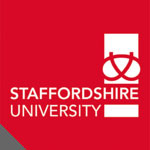How far did we get? How far to go? A European survey on postgraduate courses in evidence-based medicine.
HADLEY, Julie (2009) How far did we get? How far to go? A European survey on postgraduate courses in evidence-based medicine. Journal of Evaluation in Clinical Practice, 15 (6). pp. 1196-1204. ISSN 1356-1294
Full text not available from this repository.Abstract or description
Background Over the past decade, evidence-based medicine (EBM) has gained recognition
as a means to improve the quality of health care provision. However, little is known
about learning opportunities to acquire EBM-associated skills. The EUebm-Unity partnership
explored current educational activities for EBM practice for doctors across Europe.
Methods We surveyed organizations offering postgraduate EBM courses across Europe
inquiring about their course programme, teaching content and strategies, and interest in a
Europe-wide curriculum in EBM.
Results One hundred and fifty-six organizers in eight European countries reported 403
courses that had started first-time from 1996 to 2006. Despite a steady increase, in absolute
terms, the frequency of courses was low and varied from 1 first-time offering of a course
per 640 doctors (Spain) to 1 first-time offering per 5600 doctors (Austria) over 10 years.
Most adopted the McMaster EBM teaching concept of small group, problem-based learning
focussing on interventions, diagnostic tests and guidelines, and included efforts to link
EBM to patient care. Teaching staff consisted of doctors from academic and non-academic
settings, supported by methodologists. Efforts to formally integrate EBM in postgraduate
activities were only partially successful. Most organizations welcomed a standardized
European qualification in EBM. A limitation of the survey is the lack of follow-up information
about the continuation of courses following the first-time offering.
Conclusions All countries offer some EBM courses with varying teaching intensity.
Learning opportunities are insufficient to ensure widespread dissemination of knowledge
and skills. Most countries welcome more efforts to develop inexpensive and feasible
educational activities at a postgraduate level.
| Item Type: | Article |
|---|---|
| Faculty: | Previous Faculty of Health Sciences > Nursing and Midwifery |
| Depositing User: | Julie HADLEY |
| Date Deposited: | 15 Jan 2013 17:47 |
| Last Modified: | 24 Feb 2023 13:35 |
| URI: | https://eprints.staffs.ac.uk/id/eprint/144 |
Actions (login required)
 |
View Item |

 Lists
Lists Lists
Lists






